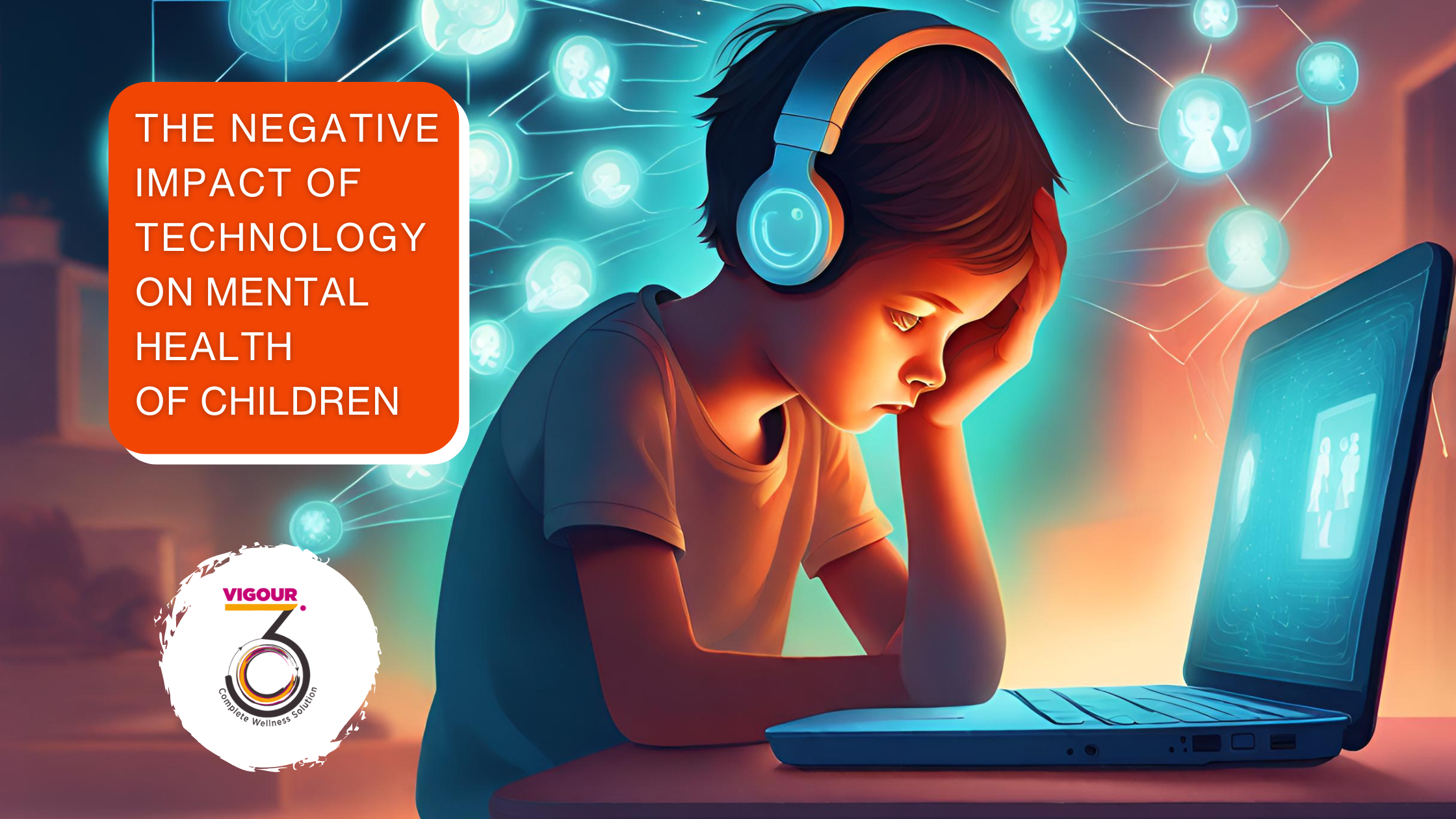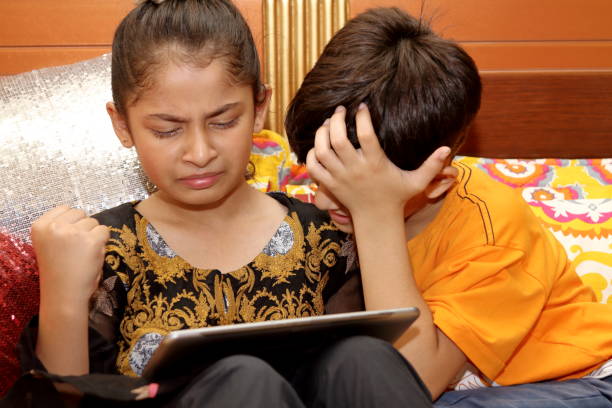
In the age of technology, children have easy access to different gadgets such as iPad, laptops, iPhone, smartphones etc. Parents introduce screens to kids as learning medium, on the contrary misuse and overuse of technology adversely impact child’s mental health.
According to observational studies there is a correlation between screen media exposure and increase obesity risks and behavioural problems in children and teens.
Research suggests that children and adolescents often exhibit mindless eating behaviours while watching TV or engaging in video games, contributing to an increase in obesity rates within this age group. Additionally spending hours in front of screens decreases the physical or outdoor activities. There is wide gap between calories consumed and calories burned.
Due to increased online interaction, children do not involve in personal communication. On average children spend 3.5 hours on screen which is a lot of visual stimulation, gradually they cannot be attentive to a person.
Many children are habituated to watching TV or their favourite cartoon while eating, these children often associate mealtime with screen time. In absence of a device, they feel irritated, cannot concentrate on eating, feels disconnected from their parents.
Encourage your child to connect with you during lunch or dinner; listen to their feelings; and allow them to play with friends. Opportunities to interact with peers and family is all-important for their socio-emotional development.
Overuse of screens during the night leads to sleep deprivation or poor quality of sleep. Blue light emitted from mobile disrupt circadian rhythms and poses difficulty to fall asleep. It is interlinked with irritability, mood swings, lack of motivation for physical activity, stress, anxiety, and depression.

Internet addiction disorder leads to poor social skills, low academic grades, and learning barriers. It takes a toll on a child’s mental health and sometimes also causes ADHD. Higher engagement on social media leads to a feeling of loneliness and more isolation. Moreover, it leads to decreased communication and interaction.
Television in the background can hamper parent-child interaction. The Child cannot learn self-regulation and kids develop attention problem to focus on instructions hence failing to execute the task properly.
In young kids, excess use of screens slows down language development and causes learning barriers. It causes poor performance in schools. Consuming adult-directed media can produce anti-social or aggressive behaviour and can be detrimental to shaping a child’s personality. Negative social comparison seeds wrong body image perception in young minds.
According to a McAfee cyberbullying study, 85% of Indian children have reported being cyberbullied. Kids who perceive negative online interaction have at a greater risk of developing anxiety and depression.
Apart from this, long hours on digital screens result in poor sitting posture. In turn it causes neck pain, back pain, or cyber motion sickness at an early age. The kids gradually lose interest and motivation for sports and physical activities. These children develop sedentary lifestyles and end up making unhealthy eating choices. It can be a major reason for the spike in childhood obesity. More exposure to digital screens leads to visual disturbances in kids.
Parents are required to be cognizant of the duration kids are spending on digital devices as well as their online interactions. Face-to-face dialogue is vital to develop common social skills. Children imitate their parent’s behaviour so both the parents should limit screen usage.
A new age problem for toddlers due to excessive screen time. The prolonged exposure to screens and virtual interactions could have adverse effects on the development of toddlers, showing similarities to symptoms found in autism spectrum disorder.
Excessive screen time at early age is detrimental to child’s social, cognitive as well as emotional development leads to virtual autism.
Implementing strategies like reducing screen time and promoting activities that support healthy development can help alleviate symptoms similar to those observed in virtual autism.
Screen time recommendation from Indian Academy of Paediatrics for digital wellness in infants, children and adolescents.
For Children
Vigour360 works in partnership with schools for student’s physical and mental wellness. A school health program play a crucial role in creating awareness among parents and couselling from experts. Connect us to know more.
Comments (0)